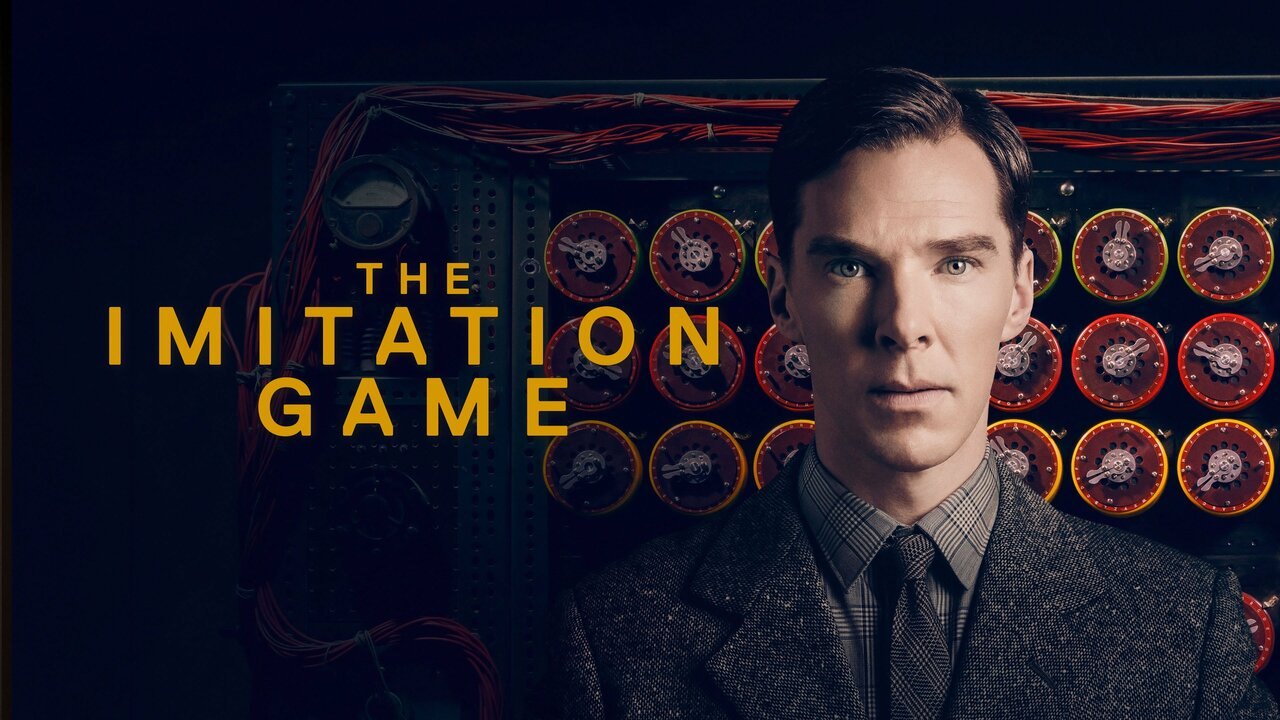The Imitation Game (2014)

Directed by Morten Tyldum and starring Benedict Cumberbatch in a stellar performance, “The Imitation Game” is a biographical drama that brings to life the extraordinary story of Alan Turing and his team of codebreakers at Bletchley Park during World War II. Released in 2014, the film not only explores the groundbreaking work of deciphering the Enigma code but also delves into the personal and professional struggles faced by Turing in a society that was intolerant of his unconventional genius.

The narrative unfolds through dual timelines: the intense wartime efforts at Bletchley Park and Turing’s earlier years as a brilliant but socially awkward mathematician. Benedict Cumberbatch’s portrayal of Turing captures both his intellectual brilliance and his social ineptitude, portraying him as a complex figure driven by a singular desire to solve the Enigma code and help end the war.
At its core, “The Imitation Game” is a tribute to the power of intellect and perseverance in the face of adversity. Turing’s relentless pursuit of breaking the seemingly unbreakable Enigma code is portrayed with a sense of urgency and suspense, highlighting the critical role that his work played in Allied victory. The film masterfully balances the tension of wartime espionage with the personal drama of Turing’s life, including his struggles with identity, relationships, and the burden of secrecy.

Central to the film is Turing’s development of the Turing machine, an early concept of a general-purpose computer. This invention not only revolutionized code-breaking during the war but also laid the foundation for modern computing technology. “The Imitation Game” skillfully integrates these technical aspects into its narrative, illustrating how Turing’s pioneering work not only saved countless lives but also shaped the course of history beyond the war.
Thematically, the film explores profound issues of identity and acceptance. Turing’s homosexuality, a criminal offense in 1950s Britain, forms a poignant backdrop to his story. His relationship with Joan Clarke (played by Keira Knightley), a fellow codebreaker and close friend, highlights the emotional complexities of his life and underscores the injustices faced by LGBTQ+ individuals at the time. Cumberbatch and Knightley deliver compelling performances that add depth to their characters’ bond and illuminate broader themes of societal prejudice and personal sacrifice.

Visually, “The Imitation Game” captures the stark contrast between the intensity of wartime cryptography and the tranquil English countryside of Bletchley Park. The cinematography immerses viewers in the claustrophobic atmosphere of the code-breaking hut, where the fate of nations hangs in the balance, while also conveying the emotional isolation experienced by Turing in his personal life.
In conclusion, “The Imitation Game” stands as a poignant testament to the unsung heroes of World War II and a tribute to Alan Turing’s enduring legacy. Through its gripping narrative, stellar performances, and thematic depth, the film not only educates audiences about the pivotal role of code-breaking in history but also celebrates the indomitable spirit of a man who dared to think differently. As Turing famously said, “Sometimes it is the people no one can imagine anything of who do the things no one can imagine.” “The Imitation Game” honors Turing’s extraordinary achievements and invites viewers to contemplate the profound impact of innovation and courage in the face of adversity.










